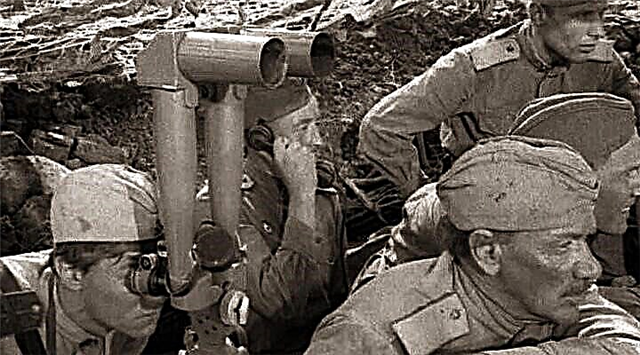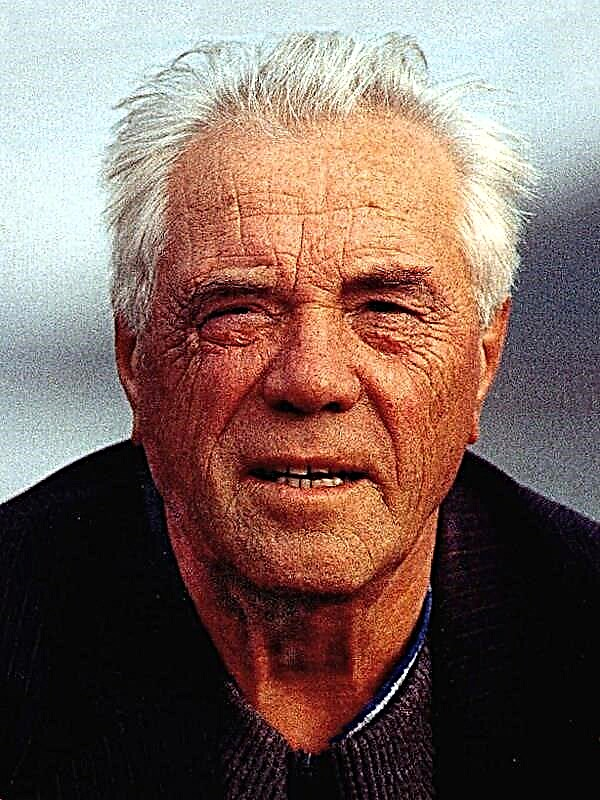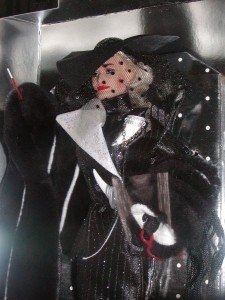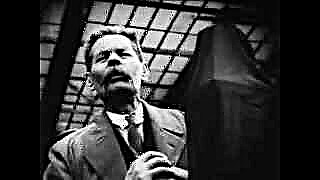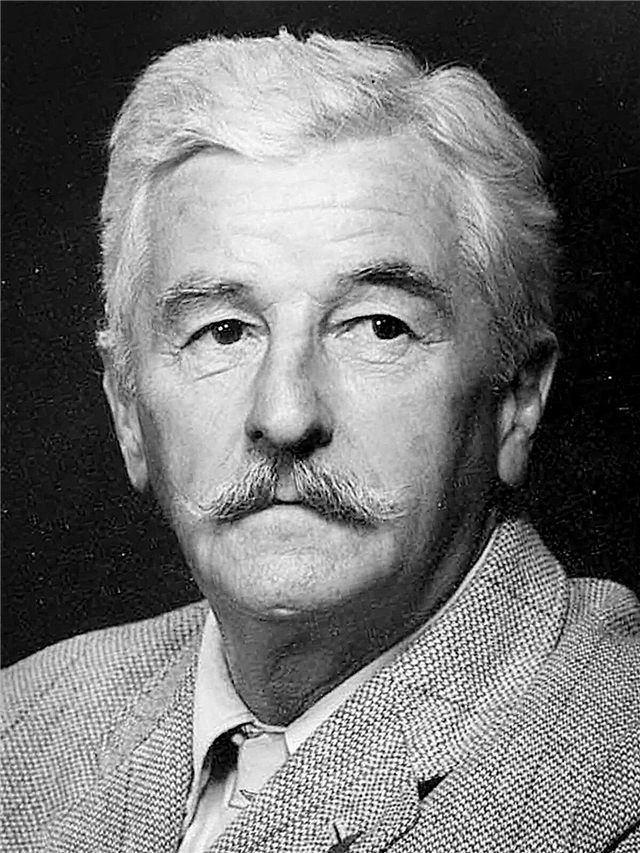Part I. Principles
Interaction
The main occupation of a professional non-fiction writer is working on text. Writing is a craft. A person who does not write due to lack of inspiration evades his work and cannot earn his bread. Writers are hardworking loners. They rarely see colleagues and never revolve in bohemian literary circles.
Each writer has his own method of work, but they all transfer a piece of themselves to the paper. The personality that arose on paper is much more constrained than the one that holds the pen. The reader needs to find a real person behind this constraint and become interested in him. Good interaction non-fiction rests on this interaction.
Simplicity
Our speech is cluttered with unnecessary turns. It seems to us: if the phrase is simple - something is wrong with it.
To write well, you must learn to simplify each phrase. Long words, adverbs, participles, passive constructions clog the text and make it difficult to understand.
We must fight for the reader’s attention. A person forced to wade through a text as through a jungle will soon get tired of this activity. Most often this is due to the negligence of a writer who poorly composed a phrase or misused a word.
When writing a proposal, the writer must constantly ask himself: "What do I want to say?" Sometimes a clear phrase does not come out the third time. Remember this and do not despair.
Rubbish
The quality of writing is directly proportional to the number of harmful little things that the author managed to remove, so you need to follow every word.
Many turns can be replaced in one word. In the expressions “personal opinion” or “personal friend” the word “personal” is clearly superfluous. And the phrase “now” replaces the word “now” or “today”.
Do not use long or buzzwords - they can strangle your text. To clear what you’ve written, enclose non-useful words and passages in parentheses. You will immediately understand what needs to be removed.
Style
The writer needs to become recognizable, and, therefore, develop a corporate identity.
Having cleared the text, some begin to decorate it - to look for catchy epithets and comparisons. At first glance, such a text looks good, but then it begins to seem unnatural. You can develop your style in only one way - by remaining yourself.
The most natural-looking text is written in the first person. However, this style is not suitable for all genres.
Do not hide behind the muddy pronouns, adhere to your views firmly, and your personality will be noticed.
Lecture hall
Do not try to please the publisher or the “wide audience”, write as you like. Insert jokes into the text, not being afraid that someone will not understand them. If you like these jokes, someone else will definitely like them.
Mastery serves to keep the reader's attention. But then he needs to like it, only then will the reader become yours. The writer must not only be fluent in technical techniques, but also approach the craft of writing as a creative act.
Be true to yourself, and over time, your style will be freed from debris and fog, formed and honed.
The words
The style of any author can kill journalistic jargon - a mixture of cheap, template words. The presence of such jargon distinguishes the literary day laborer from a real writer. Jargon consists of words and phrases such as “great,” “immortal,” “ran into a bullet,” “fought alone,” “rampant corruption,” “a disturbed hornet’s nest.”The reader immediately recognizes this journalistic hack and quits reading.
Avoid this with all your might. Pick up rare and unusual words. Swarm in dictionaries more often. A dictionary of synonyms will be especially useful.
Watch how your phrases sound. A person hears each phrase with his inner ear, so rhythm and alliteration are very important.
Words are your only tools; use them skillfully and inventively. And remember: someone invisible always listens to you.
Part II. Methods
Unity
They learn to write when they write. The core of good writing is unity that prevents the reader’s thoughts from scattering.
How to reach it?
Choose a pronoun - decide which person you will write from. Ensure the unity of time - choose the tense of the verbs with which you are comfortable writing. Keep the unity of tone in the text. Choose a casual, friendly, or formal tone and never mix them.
Getting started, ask yourself:
- What role will I speak to the reader? (Reporter, information provider, ordinary person).
- Which style will I choose? (Impersonal reporting, friendly, or official).
- What will be my position? (Indifference, detachment, condemnation, irony, mild humor).
- How broadly will I cover the topic?
- What is my main point?
Remember that not a single, even the narrowest, topic can be fully covered - your current final outcome tomorrow will inevitably become intermediate.
The thesis, the fundamental idea, in the work can be only one. Decide what idea you want to convey to the reader, and this will determine the tone of the book and the author’s opinion.
It often happens that the decisions you make are incorrect, and the thread of the narrative leads you in a completely different direction. Do not be a slave to a predefined plan and move where the soul calls.
Reason and ending
The most important part of the article is the conception. The purpose of the inception is one - to interest.
Use an original thought, an elegant paradox, a joke, or just start telling an interesting story. The reader should immediately understand what your article is about and whether it is worth reading. Build paragraph to paragraph tension. Make the end of each paragraph sharp and unexpected so that the reader wants to move on to the next.
No less important is the ending of the article. Do not drag it out, take stock of what was said earlier. The perfect ending should slightly surprise readers with their surprise, but look absolutely correct.
If you have stated all the facts and conveyed the idea, just put an end to it. For the ending, a sharp phrase that will surprise the reader may come in handy.
A little bit of everything
This chapter consists of minor warnings that the author collected "under one heading."
Verbs
Avoid the passive voice. Text stuffed with passive constructions bores the reader. Remember: the shorter the better.
Use active verbs that give the text pressure and dynamism. Do not use evasive expressions, such as "the president of the company vacated his seat." Tell me exactly what he did - quit, retired or flew out in disgrace.
Adverbs, adjectives and qualifiers
Often, adverbs are unnecessary ballast. They adjoin a word that has the same meaning, and clog the phrase: “scream loudly”, “bite the bullet”, “exhaustingly tiring”, “slightly spartan”, “completely stunned”.
Adjectives should also be treated with caution, otherwise your text will turn out to be overly flowery and magnificent. Use adjectives when you can’t do without them.
Do not use words that specify your thoughts and feelings: “slightly”, “a little”, “like”, “enough”, “very”, “very”, “too”, “decently”, “in a sense”. They dilute the phrase, make it unconvincing.
Punctuation
A novice writer can get confused in a long phrase. The best way out of this situation is to put a point in the middle of the sentence and break it into two parts. Text composed of short and concise phrases is easier to read.
An exclamation mark is used to emphasize the gravity of the phrase. Do not place it too often and mark them your jokes.
A semicolon allows you to add another thought related to it to the first part of the phrase. The reader pauses a little on this sign, so use it carefully so as not to slow down the text.
A dash reinforces the conclusion or generalization, and two dashes highlight an additional thought inserted in the middle of a phrase. This sign pushes, speeds up the text.
The colon provides a pause before a long listing.
Turning words and nouns expressing concepts
Words and phrases such as “but”, “and yet”, “however”, “opposite”, “therefore”, “in this way”, “along with this”, “so”, “further”, “today” , "Consequently" warn the reader of a change in your logical position. Forget that the sentence cannot begin with “but” - this contrasting word prepares the reader for change.
Nouns expressing vague concepts - "reaction", "cynicism", "response", "hostility" - kill the text. In the proposals where they are present, there are no actors, which means there is no life.
Swirls of nouns, exaggeration and certainty
Often there are phrases with garlands of nouns. Each such garland can be replaced with one word, best of all - with a verb, and rid the text of ballast.
Exaggerations - bombs with rude humor. Do not spoil your text with them. But credibility for a non-fiction writer is a necessary thing. Do not let the reader catch yourself in a hoax, otherwise you will lose his trust forever.
The radical method and paragraphs
Sometimes there are phrases that cannot be rebuilt. It’s easier to throw a bad piece out of it — it will only improve the text.
Short paragraphs will also make the article more readable, because a solid text only scares the reader away. The optimal paragraph length is 2-3 sentences. Each paragraph is a separate whole, one in meaning and in structure.
Part III. Genres
Non-fiction as literature
Among the books that are published today, more and more non-fiction appears. People do not want to read fictional stories, but the truth about their life.
Most famous non-fiction writers withdrew from journalism. Modern non-fiction writers not only know how to clearly state facts, but also write beautifully.
If a person wants to learn how to write and work with text, he is better off not taking for a novel, but for articles.
How to write about people
To take a good interview, you need to be able to talk to your interlocutor. His words will always be better than yours, because they reveal his essence. The liveliness of your writings will be directly proportional to the number of quotes that you can insert into them.
Find an interesting person with a figurative speech, prepare a list of questions and write down everything that he will tell you. The whole conversation will not be included in the article, but it is important for you not to miss the successful phrase.
Composing an article based on the results of the interview, you can remove all rubbish from the conversation or swap phrases. You must highlight the main thing without distorting the position of your interlocutor.
How to write about places
Each, even ordinary locality has its own peculiarity. Find her and start your article with her. And then take on the people living in this area, because the most interesting thing for the reader is people.
Choose your words carefully, especially adjectives, so as not to fall into a sugary-romantic style. Write vibrantly, interestingly and essentially without unnecessary epithets.
How to write about yourself
Autobiography covers the whole life of a person and sums it up, and memoirs resemble a snapshot of a moment of life that is significant for the author. Try to convey the atmosphere of that time. This will help you to describe the feelings and details - sounds, smells, names, songs. And of course, the people who surrounded you then.
But do not stoop to "sloppy scribble", do not write everything that comes to mind, try to separate the concepts of "ego" and "egoism".Use a good language, because you write about yourself and for yourself, combine the events of your life into one harmonious and dynamic whole.
Science and technology
The non-fiction non-fiction is based on logic and resembles an inverted pyramid. The top of this pyramid is a fundamental fact from which conclusions are drawn, and the pyramid is expanding.
Logically justify every stage of your story - there should be no "white spots". And do not abuse the terms. Your text should be understood by an ordinary person who has long forgotten what he was taught in physics classes. If terms are necessary, explain their meaning directly in the text.
This genre will teach you to think clearly and clearly build the text.
Business papers
All business papers are teeming with clericalism.
Learn to write your reports in a normal language. Your personality should be reflected in them, and the boss should understand what innovative improvement you have developed.
Sport
Almost all sports commentators use a special language, saturated with sports jargon to the limit. We read similar articles to find out the result of the competition, but not for pleasure.
How to write an interesting sports review?
- Avoid wildcard expressions.
- Look for new, unfinished words.
- Do not forget about a simple, good and concise language.
- Do not saturate your article with unnecessary numbers.
- Write about people.
How to write about art
People who write about art are divided into reviewers and critics. The browser talks about new films or books, and you decide whether they are worth your attention. The critic reveals the meaning of the novel or performance, evaluates them based on the history of the genre.
For those who decide to write about art, there are several rules.
- Love your area of activity. The reader should feel how anxious you are about literature or theatrical art.
- Do not reveal the plot details. After reading your article, the reader must decide for himself whether he wants to know the ending of the story.
- Use specific details in the reviews - this will help to avoid common, insignificant words.
- Do not use enthusiastic epithets, express your opinion clearly and accurately.
Humor
If you are trying to write humorous works, then almost everything you do is serious. Sometimes humor is the only way to say something important or look differently at a phenomenon that has become commonplace.
There are also rules here:
- Do not invent "funny" names.
- Do not repeat the same joke several times.
- Do not be afraid to say things that are unpleasant to the authorities.
- Look for the funny in everyday life.
- Do not bombard the reader with jokes, it is better to surprise him with one, but unexpected sharpness.
- A joke does not have to have a deep meaning. Pure absurdity is also sometimes beautiful.
- Do not try to explain your own jokes.
Whether it is a satire, a parody or a feuilleton, humor not only entertains - it makes a person free.
Part IV Attitude
The sound of your voice
Do not try to adapt to the style of publication or the genre of non-fiction. Write about everything, but only in your own style. The reader must distinguish your work from hundreds of others, to recognize the sound of your voice.
Avoid negligence, indulgence, and commonplace. Some writers know how to communicate with the reader as a close friend. But the inept author does it casually, vulgarly and even insultingly, with cliches and cheap jargon.
Use your good taste and don't be afraid to imitate other writers - over time your unique style will be born out of this.
Pleasure, fear and confidence.
Writing is a lonely occupation. So that monotony and routine do not penetrate your article, write it with pleasure. Your article will be saturated with this feeling and will pass it on to readers.
The reader should feel that the writer is good, even if he is bad. Learn to disconnect from your problems and fully surrender to work.
Many nonfiction writers fear a blank sheet of paper.To overcome it, you just need to start writing. Overcome the fear of commitments, failure, help interest in the topic and accuracy of presentation.
Tyranny of the final product
Some writers, not yet starting to write, already see their article printed. This makes it difficult to choose a comfortable style, shape and tone.
Do not try to adapt to someone, do not think about the fee in advance, do not strive for a “finishing tape”, leaving a sloppy text. An article or book written well is sure to be bought.
Writing Solutions
By creating an article or book, the author makes a number of decisions. Decisions are major - in what genre, style, face and time to write. And small ones - which word or speech turn to use in a specific sentence.
It’s not enough to be able to make beautiful and melodic phrases, you need to learn how to correctly connect them. The sequence of phrases should be logical so that the tension of the story grows and leads the reader from paragraph to paragraph. Every next step should look inevitable.
How to write a family story
By creating a book about the family, you write not only about yourself, but also about your relatives. If you decide to perpetuate the history of your family, write the truth, do not be afraid to hurt your sister or cousin. Keep good taste, sense of proportion and do not throw a bunch of dirty laundry on readers and relatives.
If the family history is too extensive, limit yourself to one branch of the genus, and leave the other for the next book. And it’s not at all necessary to “squeeze” numerous cousins and cousins into the narrative. Be content with little, use only the brightest moments of family history in your book.
Do not plan a fundamental epic. Just write down your memories, and then combine them into one.
Write as best as possible
The writer must entertain. Articles that entertain are remembered by the reader, and the next time he will look for your article in the newspaper.
Ninety percent of your victory is the ability to handle words. Natural talent, taste, sense of rhythm and words will be a good help. But the main thing is a sense of competition. If you want to become a real non-fiction writer - write best and protect your work from incompetent editors.


